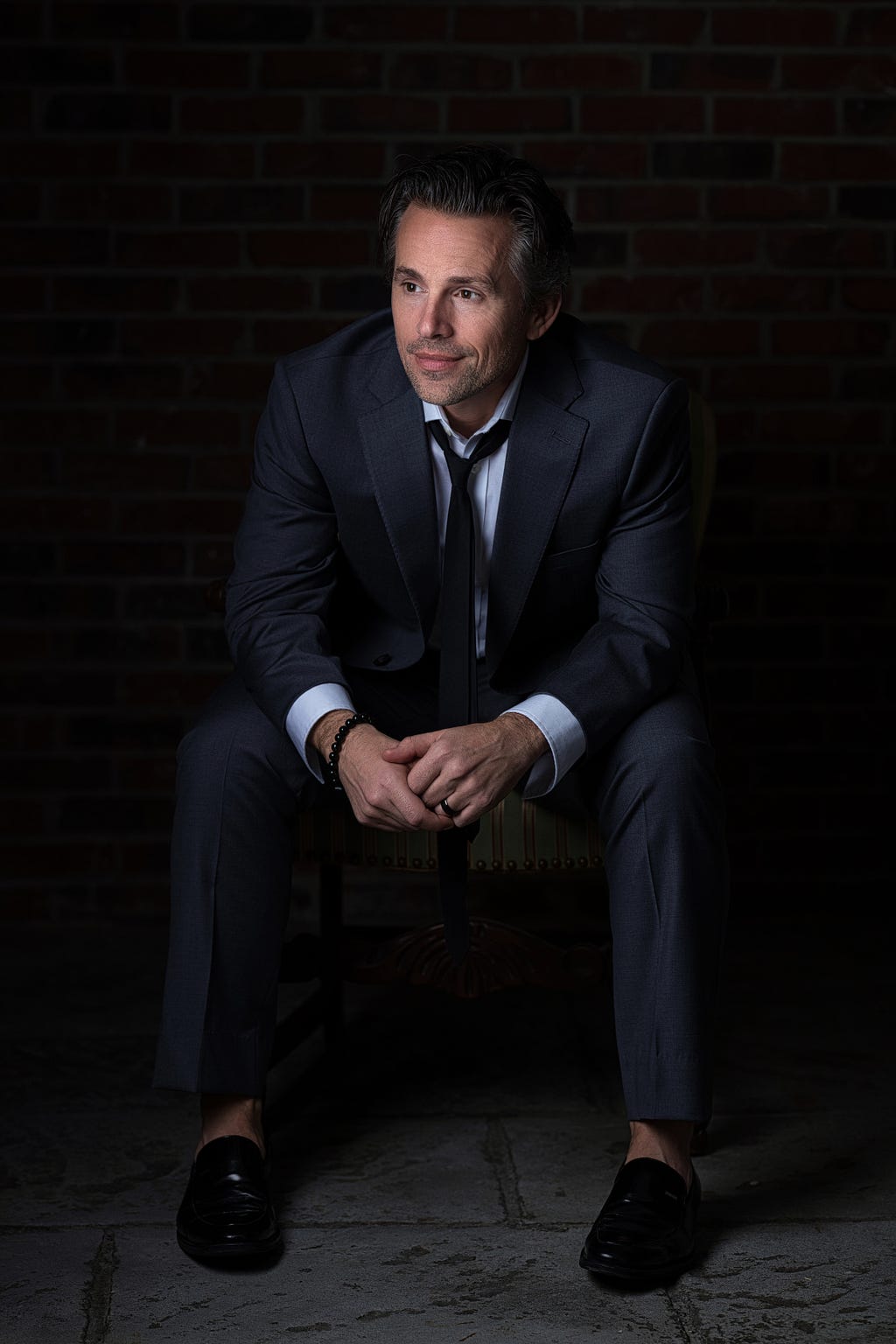Impactful Communication: Author Joe Pardavila On 5 Essential Techniques for Becoming an Effective Communicator
An Interview With Athalia Monae
Start with a personal anecdote. Let them know who you are through a short story.
In an age dominated by digital communication, the power of articulate and effective verbal communication cannot be understated. Whether it’s delivering a keynote address, leading a team meeting, or engaging in a one-on-one conversation, impactful speaking can open doors, inspire change, and create lasting impressions. But what truly sets apart an effective communicator? What techniques and nuances elevate a speech from mundane to memorable? As part of this series, we had the pleasure of interviewing Joe Pardavila.
Joe is a podcaster and author who has spent decades in audio content production, creating over 10,000 hours of content, including his time as a radio personality on New York’s 95.5 PLJ with the “Scott & Todd in the Morning” show. His passion for communication led him to write the bestseller “Good Listen: Creating Memorable Conversations in Business and Life,” where he shares tips on mastering the art of conversation.
Thank you so much for joining us in this interview series. Before we dive into our discussion about communication, our readers would love to “get to know you” a bit better. Can you share with us the backstory about what brought you to your specific career path?
Can you share the most interesting story that happened to you since you started your career?
A funny thing happened with Jennifer Anniston early in my career, and I share the story in my book Good Listen. And was later picked by the New York Post.
You are a successful business leader. Which three-character traits do you think were most instrumental to your success? Can you please share a story or example for each?
I’m a child of immigrants so, I have always treated my ‘white collar’ jobs with a ‘blue collar’ mindset. Work hard and be nice to people. And the rest will take care of itself.
Ok, thank you for that. Let’s now jump to the primary focus of our interview. Let’s begin with a basic definition so that we are all on the same page. How would you define an “Effective Communicator?”
What are the characteristics of an effective communicator?
Caring and listening. They go hand in hand. If you don’t care about the person, you’re talking to you won’t listen. And listening shows that you care. You’ll never connect with someone if you don’t truly care to learn more about them.
How can one tailor their communication style to different audiences or situations?
Do your homework. Treat life and business like you’re hosting a talk show or podcast. It’s sort of like dating; you’d never go on a date with someone without googling them first. Why would life be any different? If you have a meeting with a client, thanksgiving dinner with long lost relatives, or speaking to a group of strangers — do some research and learn what they’re passionate about.
Can you provide an example of a time when you had to adapt your communication style to reach a particular audience successfully?
Find your ‘IN’.
One of the biggest compliments I get from a guest on the podcast is when someone says, “You clearly did your homework before we started.” And I just smile, while knowing I really didn’t. That’s not to say that I didn’t read up on the person and see what they’re doing and what they’re all about, but I spend the preparation phase of the podcast looking for my “in.”
To me, my “in” is finding one thing — maybe it’s more than one — but that one thing that can connect us. You might be scanning back and saying, how the heck can you connect with a wedding planner and a dog therapist? Again, it’s not so hard.
My “in” for a wedding planner was sharing a story about my nephew going through hell for his wedding. For a dog therapist, I wanted to know why Nathan always wants to lick my face off (Nathan is my dog, by the way).
How do you handle difficult or sensitive conversations while maintaining open and effective communication?
Practice self-awareness. People don’t have your same lived in experiences or don’t have the same hopes and dreams. Be aware enough, that a person can be having a bad day, and maybe you might need to make them feel better. If they’re happy find out what makes them happy.
In your experience, how does storytelling play a role in impactful speaking? Why do you think stories are effective in communication?
There’s no better way to connect with people than with a personal story. I always start a podcast or a talk with a personal story to connect with a guest or an audience. One it gives them the indication that this is a safe place and they two will be comfortable sharing their story. And two, it shows them your point of view and prepares them to see things from your perspective.

What are your “5 Essential Techniques for Becoming an Effective Communicator”?
1 . Start with a personal anecdote. Let them know who you are through a short story.
2 . Listen to their story. Let them share what’s on their mind and take it in.
3 . Reflect. Try and do a quick recap of what they just said for clarity.
4 . Use the long form improvisation technique of “Yes, and…”. Agree with their statement, and then add on something that builds to on their story.
5 . Ask Questions. Dig into what was shared and find common ground.
How do you integrate non-verbal cues into your communication? Can you provide an example of its importance?
I think the strongest non-verbal cue is a smile. Humans tend to mirror the behaviors of others, like when you see someone else yawn. You instantly do the same. The same goes with smiling, starting things with a simile your conversation starts on third base.
How has digital communication changed the way you convey your messages? Are there any specific challenges or advantages you’ve encountered?
When it comes to texts and emails, its best to keep those short and sweet and center around yes and no questions. Any nuanced conversations should be done in person or virtually.
Public speaking is a common fear. What techniques or strategies do you recommend managing and overcome stage fright?
Be passionate about what you’re going to talk about. If you don’t love the subject matter or the people you’re talking to you’ll never breakthrough the fear. But once you find that “thing” that you love the fear will melt away.
What additional resources do you recommend for individuals looking to improve communication skills?
Shameless plug! My book! Good Listen. I share experiences that made me a better communicator and I think that’s how we learn the best, from ours and other people’s mistakes.
You are a person of great influence. If you could start a movement that would bring the most amount of good to the most amount of people, what would that be? You never know what your idea can trigger. 🙂
Involuntary Kindness.
What’s the first thing you say after you inadvertently bump into someone while you’re walking? If you’re a bully from an ’80s teen comedy, you might say, “Watch your step, dickwad,” but you’re more than likely to say, “I’m sorry.”
That’s involuntary kindness — a reflexive and instinctual reaction to ask for grace. It’s basically like breathing.
We don’t even think about it.
The next time you’re about to snap at someone, roll your eyes, or fire off a snarky comment, pause for just a second. Ask yourself: What would it cost me to be kind instead? Chances are, it’s less than you think, because at the end of the day we don’t want to be dickwads.
How can our readers further follow you online?
You can find links to my YouTube, Instagram, X, LinkedIn and Tiktok pages at JoePardavila.com
Thank you for the time you spent sharing these fantastic insights. We wish you only continued success in your great work!
Impactful Communication: Author Joe Pardavila On 5 Essential Techniques for Becoming an Effective… was originally published in Authority Magazine on Medium, where people are continuing the conversation by highlighting and responding to this story.
